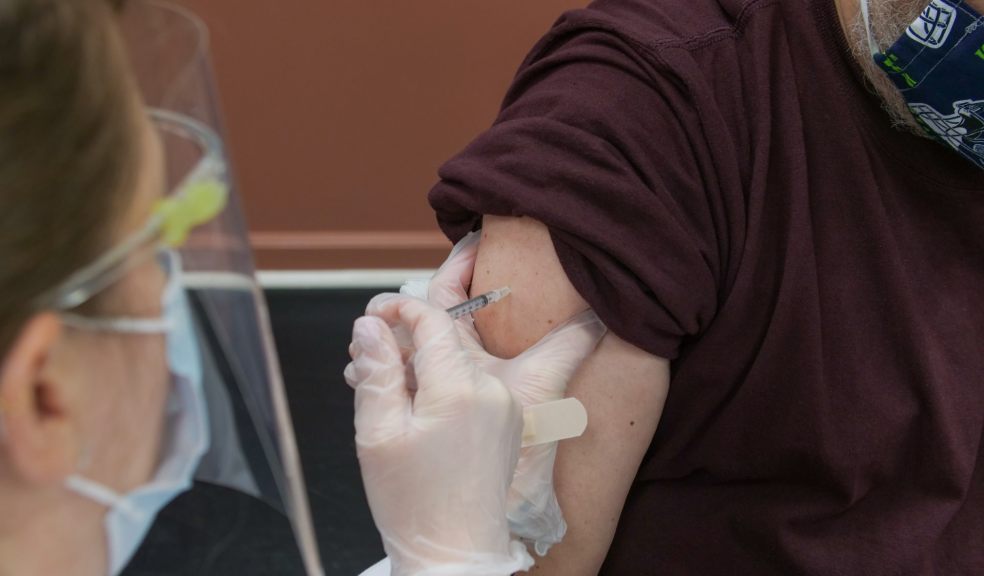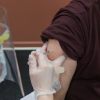
"I didn’t even feel the needle go in” - A message from Devon on getting the Coronavirus vaccine
Getting the Coronavirus vaccine - A Message from Devon aims to reassure people about both having the vaccination and the process of attending a centre. It encourages others to take up the opportunity when they are invited.
“Absolutely brilliant,” is how patient Gloria Brinicombe described the experience, “not in pain, beautifully done, very quick, very easy and everything was done with a smile.”
“It seemed remarkably easy" says another patient Duncan Erskine, who was vaccinated in Cullompton.
“I didn’t even feel the needle go in,” says Gillian Rowlands, “It’s the light at the end of the tunnel for us, I hope."
Dr Jo Harris, a GP in Crediton, has found it an incredibly uplifting experience: “The patients who have been here have been so grateful. I didn’t realise how worried I was before. I definitely feel a lot safer now.”
Dr Angela Martin, a GP in Cullompton, wants to reassure people in the film that the vaccine has undergone all the normal safety tests as part of the regulatory approval process. “We know that it’s safe,” she says. ”It’s been very well tested. The quicker we all get it, the quicker we will all get back to normal.”
Patients who have a needlephobia should talk to their GP or the vaccination centre teams.
Dr Liz Thomas, Assistant Medical Director at Exeter’s Large Vaccination Centre says the needles used are much smaller than people imagine. “It doesn’t hurt. We will do everything we can to make sure you feel reassured and comfortable. It’s the thought that’s worse than the injection.”
There has been a worrying increase in the number of people not attending appointments in recent weeks or not responding to their invitation to have the vaccine.
“Missed appointments can waste the vaccine and prevent other vulnerable patients from using the appointment.” says Darryn Allcorn, Chief Nurse at NHS Devon Clinical Commissioning Group. “It also means NHS staff will be diverted away from their existing healthcare roles for longer, because they will have to run more clinics.”
If your circumstances change or you no longer need an appointment, it is easy to cancel a booking. If you have made your appointment through the National Booking Service, you change or cancel an appointment on the website or by calling 119. If your appointment has been organised by your GP you should phone them if you can no longer attend.
Vaccination centres are offering flexible appointments during evenings and weekends as well as normal office hours, so everyone should be able to find an appointment time to suit them. The vaccination itself only takes a few minutes.
People who are using the online national booking system for their appointments are also being reminded to click on the “confirm” button to finalise their booking. They should then receive an email confirmation with the details.
It is important to ensure your GP has the correct contact details. Patients are being contacted by phone, up to three times, and by letter inviting them for their vaccination.
People may now also receive a text from the National Booking System as 'NHSvaccine' inviting them to book a coronavirus vaccination appointment at a larger vaccination centre or pharmacy, followed by a letter a few days later.
Texts from 'NHSvaccine' are separate to any invites people may get from local NHS services such as GP surgeries or hospitals.
The COVID-19 vaccine is free of charge, and the NHS will never ask for:
- bank account or card details
- pin or banking passwords
- copies of personal documents to prove people’s identity such as a passport, driving licence, bills or pay slips
Patients can book through the National Booking Service website or phone 119 (free, 7am-11pm, seven days a week) to book an appointment if they are aged 55 and over or if they have a condition that makes them clinically extremely vulnerable.
People who have been concerned about reports of side effects from the AstraZeneca are being reassured that the vaccine is safe. Dr Phil Bryan, MHRA Vaccines Safety Lead said: “It has not been confirmed that the report of a blood clot, in Denmark, was caused by the COVID-19 Vaccine AstraZeneca.
“The Danish, Norwegian and and Icelandic authorities’ action to temporarily suspend use of the vaccine is precautionary whilst they investigate.
“Blood clots can occur naturally and are not uncommon. More than 11 million doses of the COVID-19 Vaccine AstraZeneca vaccine have now been administered across the UK.
“Reports of blood clots received so far are not greater than the number that would have occurred naturally in the vaccinated population.
“The safety of the public will always come first. We are keeping this issue under close review but available evidence does not confirm that the vaccine is the cause.
“People should still go and get their COVID-19 vaccine when asked to do so.”


















